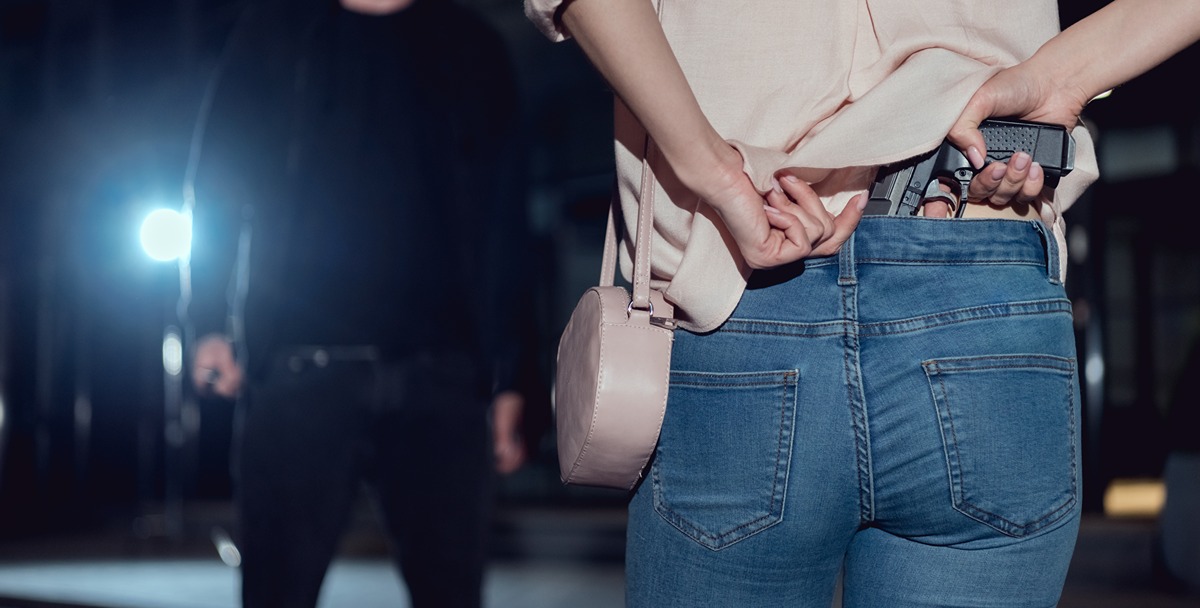What Qualifies as Self-Defense Under Arizona Law?
We’re Here to Help You – Talk to Our Legal Team Immediately
Self-defense is one of the most frequently misunderstood legal concepts in criminal law. In Arizona, many people believe that standing up for yourself is always legally protected. But the reality is more nuanced.
While Arizona law does give you the right to defend yourself, others, and your property, there are clear limits on when and how you can use force — especially deadly force.
If you’re being investigated for a violent crime like assault or aggravated assault, and you believe you acted in self-defense, it’s important to understand what the law actually says. Arizona’s justification statutes outline when self-defense is permitted, and when it crosses the line into criminal conduct. These laws are found in the Arizona Revised Statutes (ARS), starting at ARS § 13-401 and running through ARS § 13-421.
Table of Contents
- When Is Self-Defense Legally Justified?
- Defense of Others and Property
- Use of Force in Law Enforcement and Custody Situations
- What Happens If Police Don’t Believe You Acted in Self-Defense?
- What Are the Penalties If Self-Defense Is Not Accepted?
- Important Things to Remember
- How a Criminal Defense Attorney from Guardian Law Group Can Help
In this article, we break down these key self-defense laws. We’ll explain which defenses are recognized in Arizona, when force is justified, what “no duty to retreat” means, and how a criminal defense attorney can help if you’re facing charges after defending yourself or someone else
Follow us On
Free Case Evaluation
Free & Confidential Consultation
Don’t Wait – Call Us Now to Speak with an Phoenix Criminal Defense Lawyer

►When Is Self-Defense Legally Justified?
Self-defense becomes legally justified in Arizona when a person believes they are facing immediate physical harm, and they respond with a proportional level of force. But not all responses are protected. Arizona law sets clear guardrails on what is reasonable — and what crosses the line.
ARS § 13-404 – Use of Physical Force in Self-Defense
Under this statute, a person can use physical force when they reasonably believe it is necessary to prevent the use or attempted use of unlawful force against them.
A few key points under this law:
- Verbal threats alone are not enough.
- If you started the fight, your right to self-defense may be limited unless you clearly try to withdraw.
- The force must match the threat — you can’t escalate a minor shove into a violent attack and claim self-defense.
Example: Imagine you’re shoved during an argument at a bar. If you respond with a punch that causes serious injury, a court may question whether your response was proportionate and necessary.
ARS § 13-405 – Justification; Use of Deadly Physical Force
This statute allows the use of deadly physical force if a person reasonably believes it’s necessary to prevent:
- Death
- Serious physical injury
- Certain violent felonies, like kidnapping or sexual assault
To claim this defense, you must prove that you reasonably believed deadly force was the only way to stop the threat. The law does not permit deadly force in response to minor fights or non-life-threatening situations.
► Defense of Others and Property
Your right to self-defense doesn’t stop with protecting yourself. Arizona law also allows you to use force to protect other people, your home, and, to a lesser extent, your possessions. Here’s what the law says about those rights.
Defending Someone Else (ARS § 13-406)
You are allowed to use force to defend another person — as long as that person would have had the legal right to defend themselves. This could apply to stepping in during a physical assault or helping someone escape a violent situation.
Protecting Your Premises (ARS § 13-407)
If someone unlawfully enters your home or private property, you may use reasonable force to stop them. However, deadly force is only allowed if there is an imminent threat of harm — not just to prevent entry or property damage.
Defending Your Property (ARS § 13-408)
This statute allows non-deadly force to prevent theft or criminal damage to your belongings. The key word here is reasonable. You cannot legally shoot someone for trying to steal your bike, but you may be allowed to physically intervene if safe and proportional.

► Use of Force in Crime Prevention and Special Situations
Most self-defense laws are designed for everyday people, not just police officers. Arizona law also recognizes that civilians may find themselves in situations where they need to act quickly to protect themselves, others, or even prevent a crime in progress.
Below are some key laws that apply to non-law enforcement individuals in Arizona:
ARS § 13-411 – No Duty to Retreat in Crime Prevention
This is Arizona’s version of the “Stand Your Ground” law. It gives you the right to use physical or even deadly force without retreating, as long as:
- You are lawfully present in the location (e.g., your home, car, or a public place),
- You reasonably believe force is needed to prevent a serious felony, such as armed robbery, burglary, kidnapping, or aggravated assault.
This law protects people from criminal charges if they had to act fast to stop a violent crime. It also recognizes that in some emergencies, backing away isn’t always possible or safe.
Example: Imagine you’re sitting in your car at night and someone opens the door while pointing a gun at you. If you respond with deadly force, your actions may be legally justified under ARS 13-411.
ARS § 13-412 – Duress
This law provides a defense if you commit a crime because someone else threatened you with immediate death or serious physical harm unless you followed their orders. It does not apply to homicide charges, but it may help if you were forced to act under pressure — such as helping someone escape or driving during a crime to protect yourself from harm.
ARS § 13-413 – Civil Immunity for Justified Force
If your use of force is legally justified under Arizona law, this statute protects you from being sued. That means if you acted in self-defense, defense of others, or under duress — and the court agrees — the other party generally cannot file a civil lawsuit against you for damages.
► What Happens If Police Don’t Believe You Acted in Self-Defense?
One of the most common — and most stressful — issues people face after a self-defense incident is that law enforcement doesn’t believe their side of the story. Even if you acted to protect yourself or someone else, police officers might not immediately recognize your actions as justified.
Here’s why this happens: when officers arrive on scene, they are trying to assess what occurred after the fact, often based on conflicting statements, visible injuries, or witness accounts. If the evidence is unclear or appears to show that you used force first, you could be arrested — even if you were defending yourself legally.
Arizona officers are not required to prove guilt at the scene. They only need probable cause to arrest. That means even if you were legally justified, you might still face charges until the matter is fully investigated or brought before a judge or jury.
If this happens:
- Do not argue with officers or try to explain your full side on the spot. Your statements could be misinterpreted or used against you later.
- Politely assert your right to remain silent and ask for a lawyer immediately.
- Contact an experienced criminal defense attorney as soon as possible to help gather evidence, locate witnesses, and build your defense from the beginning.
At Guardian Law Group, we frequently assist clients at this early stage, especially when they’re being unfairly treated as a suspect rather than a victim.

► What Are the Penalties If Self-Defense Is Not Accepted?
If the court finds that your use of force was not legally justified, you could face harsh criminal penalties. Charges like aggravated assault, manslaughter, or even second-degree murder may apply, depending on the circumstances and severity of the alleged actions.
Here’s a breakdown of some of the most commonly charged violent offenses when self-defense is raised but rejected:
- Aggravated Assault (ARS § 13-1204) – Charged when serious injury occurs, a weapon is involved, or the victim is a protected person (like a police officer or healthcare worker).
- Manslaughter (ARS § 13-1103) – Charged when a person recklessly or under sudden provocation causes the death of another.
- Second-Degree Murder (ARS § 13-1104) – Charged when a person intentionally or knowingly causes the death of another person without premeditation.
The penalties vary based on prior convictions, victim status, and use of weapons. Below is a helpful reference table.
| Offense | Statute | Felony Class | Potential Penalties |
| Aggravated Assault (with serious injury or weapon) | ARS § 13-1204 | Class 3 or Class 2 Felony | 5 to 15 years in prison for first offense; 10 to 20+ years with priors |
| Manslaughter | ARS § 13-1103 | Class 2 Felony | 7 to 21 years in prison depending on aggravating factors |
| Second-Degree Murder | ARS § 13-1104 | Class 1 Felony | 10 to 25 years in prison; life in prison with aggravating factors |
| Disorderly Conduct (fight-related) | ARS § 13-2904 | Class 1 Misdemeanor | Up to 6 months in jail, $2,500 fine, probation |
► Important Things to Remember
- Self-defense is only legal if it’s reasonable and immediate.
- You cannot claim self-defense if you were the initial aggressor, unless you tried to withdraw.
- Deadly force is only justified in situations involving serious threats.
- Arizona’s Stand Your Ground law eliminates the duty to retreat.
- Verbal threats or insults are not enough to justify using force.
- You can use force to defend others and your home, but property alone does not justify deadly force.

►How a Criminal Defense Attorney from Guardian Law Group Can Help
If you’re being investigated or charged with a violent offense and you believe you acted in self-defense, having a knowledgeable defense attorney is critical. At Guardian Law Group, attorney Christian Lueders brings the advantage of a former felony prosecutor — someone who knows how these cases are built and how to dismantle them.
Christian Lueders has spent years handling cases on both sides of the courtroom. He understands how to challenge the state’s evidence, whether it’s video footage, witness testimony, or police reports that leave out your side of the story. In many self-defense cases, timing, perception, and the threat level make all the difference between conviction and acquittal.
Guardian Law Group offers one-on-one consultations where you can speak directly with an attorney, not a case manager. We help people across Maricopa County — including Phoenix, Scottsdale, Mesa, and Tempe — defend their rights, their freedom, and their future.
If you believe your actions were justified and want help defending yourself in court, contact Guardian Law Group today at (480) 316-4618 or reach out through our contact form.






